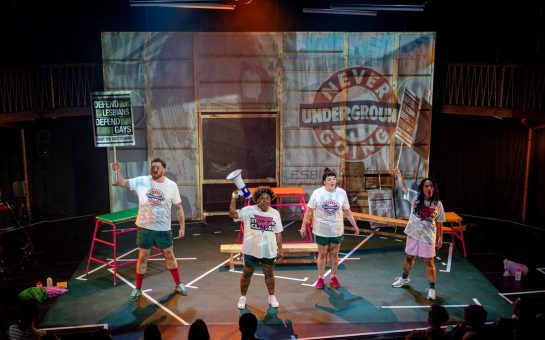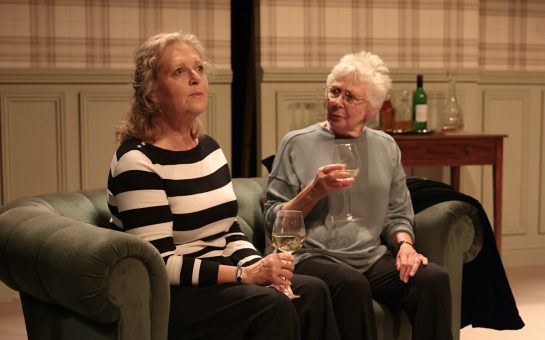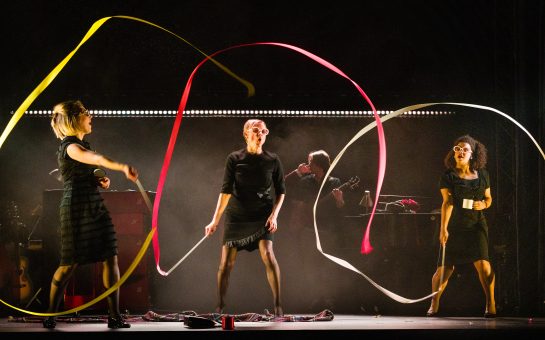There’s an odd beauty in seeing a century old reel of film projected on a giant cinema screen – scratches, fades and all.
The beauty of silent cinema shines strong within the BFI’s National Archive, and what better way to demonstrate it than have a live performance scored just for the screening accompanying it.
With the recent release of Sarah Gavron’s dramatization of women’s political history, Suffragette, is a compilation of authentic silent cinema documenting the time of the suffragettes.
And it makes for a wonderful accompaniment to help convey the lives and struggles of these women.
Starting up, the screen goes dark, and words appear setting the scene. It’s the start of the 20th century and many women have had enough of their lack of political powers.
In come the suffragettes demonstrating in Newcastle.
Live pianist Lillian Henley then glides into her first piece, beginning with a slow build up and softly hitting the keys, emphasising the serious environment the suffragettes are generating.
These women aren’t playing around, they’re generating noise.
The Newcastle reel only last a minute or two, and then we’re transported off to Westminster, where the suffragettes are no longer demonstrating – they’re rioting.
Harvey strikes up a faster and harder hitting melody for these clips by hitting the keys and octaves with sharp bursts.
This conveyed the very little patience the women have left and the severity of the action they’re taking.
We’re given several of these short, sharp excerpts of authentic footage of various suffragette movements, and then the mood changes.
Harvey sets off on a jovial little tune, and we’re treated to a little girl causing mischief running away from a constable.
It’s a delightfully innocent seven minute slapstick piece, which initially feels out of key with the authentic documentary footage, but it’s a welcome treat.
It’s only as we progress further through the footage that we learn why the many short films of suffragettes fighting for their cause are interspersed with longer comedic sketches.
It’s essential to address the lighter side to all things political.
The prime example of this comes when we’re shown the scenes of the suffragettes at the Derby horse racing event in 1913.
A highly prestigious event, but also famous for the death of Emily Davison, who threw herself in front of King George V’s horse.
The comic interludes work very well with the whole production, as a completely serious take wouldn’t show how well-rounded some of these women were.
There’s a build up to the incident, and when it happens we see it all. At this point, the screen darkens and Henley strikes down on the deep keys.
The next piece of footage is from Miss Davison’s funeral. The piano turns sombre – it’s a powerful moment, and one that addresses just how committed the suffragettes were.
And then straight after we’re treated to Tilly and the Fire Engines, two delightfully talented girls messing around with machinery, masks and basically everything society was saying they shouldn’t do.
This forms an odd sort of talisman for the production.
Sure, there’s a great deal of work to be done to secure equality and things certainly have to get nasty to reach it. But that doesn’t mean we can’t have fun along the way.
It’s a showcase for the many talents the women and the suffragettes possessed.
The power to consistently protest, the power to run a family, and the power to make physical comedy from the scenarios they experience.
In the closing footage, Henley plays out the piano in with playful softness.
The tone is a celebratory one, as we see the women of the suffragette movements aiding the industrial demands of the First World War.
Henley sounds out the piano with a high, glamourous note and the lights come up. This concludes a delightful insight into the female ancestry, who fought to be where we are today.
Lillian Henley has composed a wonderful score to accompany an eye-opening and respectful showcase on the development of the suffragette movement.
And proves there was more to their behaviours than just violent protests.
The short film reel has been compiled with grace and a real sense of a holistic visionary, and the authentic live score reminds us that cinema was still powerful over a century ago.



